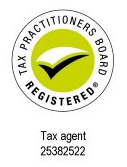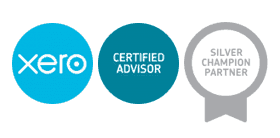It’s quite common for people to structure their professional affairs by setting up an entity to run their business through. This could be a trust, a partnership or, most often, a company. However, the Australian Taxation Office has a mechanism to stop businesses taking advantage of these structures. Here’s what you need to know about Personal Services Income (PSI).
The tax rate for small companies is just 25 per cent which compares very favourably with the top personal tax rate of 45 per cent. In addition, companies can claim a wider range of tax deductions and have the freedom to distribute franked dividends to shareholders (or alternatively to retain the profits in the business).
Clearly, this could be a very effective way of sheltering profits for a small business and for that reason, the ATO often seeks to apply what are known as the personal services income (PSI) rules to regulate such situations.
The impact of the PSI rules, for those affected by them, is twofold:
- Income within the so-called interposed entity (typically a company) can be attributed back to the individual taxpayer
- The range of deductions available is limited to those typically available to individuals.
In short then, if you fall into the scope of the PSI rules, you can find the ATO ‘looking through’ your business structure and taxing you as an individual.
Who is affected by PSI rules?
The measures apply to companies, trusts, and partnerships where the income of the entity is derived primarily as a result of the personal efforts or skills of an individual.
The rules do not apply to income that is mainly:
- for supplying or selling goods (for example, from retailing, wholesaling or manufacturing)
- generated by an income-producing asset (such as a bulldozer)
- for granting a right to use property (for example, the copyright to a computer program)
- generated by a business structure (for example, an accountant working for a large accounting firm)
How do the personal services income rules work?
First things first: these rules are complex! Given the scope of the rules to catch the activities of many professionals and the difficulty which many people have in working out if they are caught, it is essential that you take professional advice.
To be exempt from the rules, you need to be a personal services business (PSB).
You qualify as a PSB if:
- You meet the results test.
- Less than 80 per cent of your personal services income in an income year comes from one client, and you meet one of the other three personal services business tests (the unrelated clients test, employment test or business premises test).
- You obtain a determination from the ATO confirming that you are a personal services business.
Note, however, that PSBs are also subject to their own tax regime, the effect of which is quite similar to the income attribution rules in the PSI legislation.
The ATO says that the PSB should generally have no taxable income. Total income, after expenses, should be fully paid out to the practitioner by way of salary or, in the case of a company, franked dividends. Otherwise, the general anti-avoidance rules will apply to treat the income as that of the practitioner.
PSI tests
The results test
The primary test under the PSI rules is the results test. This is a self-assessment test and an individual or their trading entity will be treated as a personal services business if they receive at least 75 per cent of the personal services income for producing a result.
To pass the results test:
- The contractor works to produce a result. For example, a contract to build or produce a software program for a fixed set price would be a contract for a result. In contrast, the payment of an hourly rate to develop the software program is more likely a contract for personal services and would not satisfy this criterion.
- The contractor provides the tools and equipment necessary (if any) to produce the result.
- The contractor is (or would be) liable for the cost of rectifying any defective work.
If an individual (or their trading entity) cannot satisfy the results test, there are three other tests available to self-assess against. The taxpayer can only consider these tests if 80 per cent or more of the taxpayer’s personal service income does not come from one source.
If the 80 per cent threshold is breached, the individual cannot consider the other tests and must apply to the ATO for a PSB determination in order to be classified as a PSB.
The three PSB tests are:
1. The unrelated clients test:
The individual or entity must provide services to two or more entities that are not associates of each other and are also not associates of the individual or entity.
The services must also be provided as a direct result of making offers or invitations to the public at large (or to a section of the public). Making an offer to the public includes advertising, tendering for work, maintaining a website or word of mouth referrals.
Services offered through labour hire companies and other such businesses that arrange to provide services directly for clients do not qualify under this test.
2. The employment test:
The individual engages one or more entities during the income year, and those entities perform at least 20 per cent of the market value of the individual’s principal work for the year.
For partnerships, the value of work performed by one partner for another in generating any personal services income is taken into account.
Both an individual and a personal service entity will also satisfy the employment test if they have one or more apprentices for at least 50 per cent of the income year.
3. The business premises test
The business premises test is satisfied by either an individual or personal service entity if at all times during the income year they maintain and use business premises at which they mainly conduct activities from which personal services income is gained or produced, and that are:
- used exclusively by the individual or personal service entity;
- physically separated from the premises of any of their clients (or associates of those clients) to which they provide services;
- physically separated from any other premise that is used for private purposes by the individual or personal service entity or any of their associates, which includes:
– a relative
– a spouse
– a partner or a partnership of which you are a partner
– a trust of which you are a trustee or a beneficiary
– a company which you control
Applying for Personal Services Business Determination
Taxpayers can apply to the ATO for a Personal Services Business Determination. This is available regardless of whether the taxpayer derives more or less than 80 per cent of their personal services income from a single source. For taxpayers who receive more than 80 per cent from a single source, this is the only way to be treated as a personal services business.
For individuals and entities, the Tax Office cannot issue a Determination unless it is satisfied that the individual meets, or has met, in the income year the Determination has effect, the following criteria:
- Either or both the business premises test or employment test; and
- Apart from unusual circumstances, any one of the three tests could be satisfied (or the Tax Office is satisfied that any of those tests will be met in future income years); or
- The individual’s personal services income was derived from activities that satisfied either of the above two conditions.
If you are concerned that your business may be treated as personal services, get in touch for a review and assistance.









